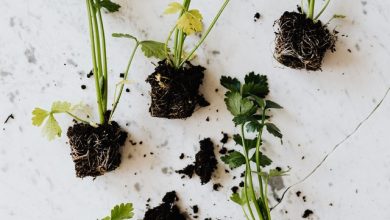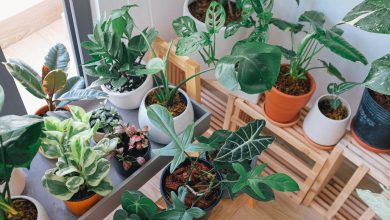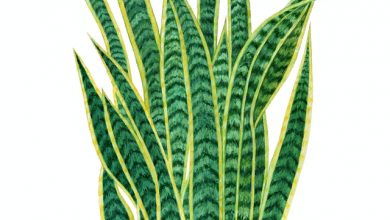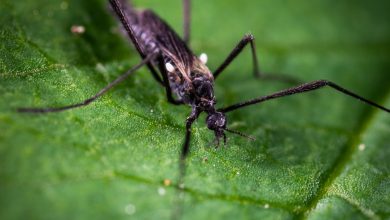16 Household Items to Help Your Garden Thrive
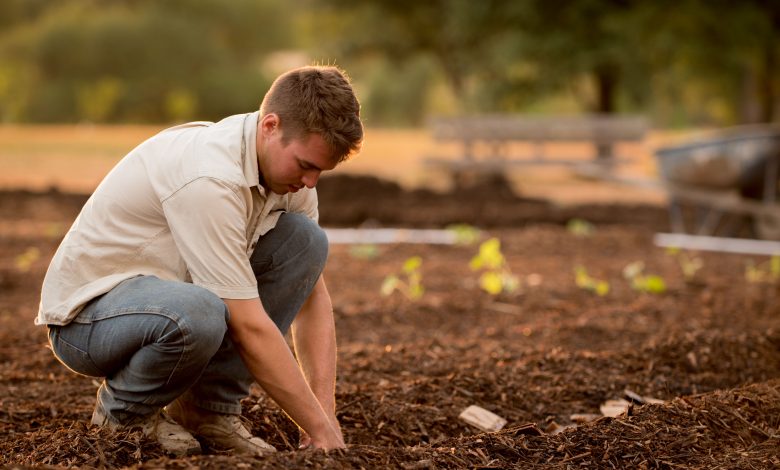
Your plants need three things to live: sunlight, water, and the nutrients in the soil. All these three play an important role when we’re talking about plant growth. But it’s not enough to give them the essentials – we must also give them the extra boost to make sure that not only do they grow, but they also thrive.
The best part is you don’t need to go to the gardening store to ask for a magical powder to enrich your growing plants. Everything you need is right in your home and your kitchen.
The core concept of helping your garden thrive is to recycle the things that you already have at home. Gardening and recycling go hand in hand. Not only does cultivation enable you to give back to the earth by growing plants, but recycling is a fantastic way to reduce your carbon footprint and overall waste – and lets you save money!
Luckily, we created this list with 16 household items that you can use and hacks that every certified green thumb swears by. We arranged it from the most common thing that you will find in your kitchen to the weirdest item that you would have never even thought of using:
1. Baking Soda
The first thing on this list is baking soda, of course. Baking soda is a multipurpose ingredient used for various activities, such as cleaning, baking, and even gardening. To use baking soda for your plants, mix a gallon of lukewarm water with at least three tablespoons of baking soda. Shake it for a good minute, and transfer the content to a spray bottle for easy application. Baking soda acts as anti-fungal protection for your greenery against all plant-related diseases.
2. White Vinegar
The next common household item on this list is white vinegar. Just like baking soda, vinegar has many uses around the house. It can be added to do dishes, clean stove countertops, and even garden. Vinegar is a great feeder for acidic plants due to its highly acidic contents. To use it on your roses or hydrangeas, combine one tablespoon of vinegar into one gallon of water, and mix well. We also recommend that you don’t apply this often, as this can also cause your soil to be too acidic.

3. Old Newspapers or Used Cardboard Boxes
If you have piles of old newspapers lying about or stacks of used cardboard boxes that you don’t know what to do with, then we’ve got good news for you. Did you know that these materials can be an effective weed killer?
To use your newspapers and carboard to kill off weeds, simply lay them around the bases of the weeds. This will deprive the weed of oxygen and sunlight. Once the papers and cardboard begin to rot away, this will increase the earthworms’ and other microorganisms’ activities and break through the dirt, destroying the weeds’ roots.
4. Boiled Water
Another simple tip to help your garden thrive is to pour boiling water. We’re not saying to pour it directly onto your plants, but on the weeds instead. The extreme heat will surely burn the weeds, including their roots, and will cause them to wither and die. You can pull them out easily later on once the soil has cooled down. Boiled potato water can also be helpful as long as you let it cool first. The water and the starch helps hydrate your greenery.
5. Green Tea
If you’re fond of drinking tea, then you would probably be delighted to know that it can also help solve your gardening problems. Aside from having multiple benefits for the body, green tea also has a lot to contribute to our green buddies.
Once you finish drinking your tea, instead of throwing away the teabag, you can use the tea leaves as food for your plants. Sprinkle them around the bases of your plants to spread nutrients such as iron – plus it keeps the vermin at bay.
6. Bananas
You don’t need to throw your peel away; instead, you can use it as a feeder for your growing seedlings. The banana peels can give the extra potassium boost that your plants need. This added nutrient will ensure that your seeds grow to be healthy and active.
7. Eggshells
Another common household ingredient that is used in gardening is eggshells, as they are an excellent source for your mulching needs and work efficiently as a slug repellent.
To add eggshells to your mulch, we recommend breaking them into tiny pieces and soaking them overnight in a mixture of water and vinegar. The next day, lay the eggshells around the base of your plants. The mixture will quicken the decomposition process, and the calcium will be absorbed quicker by the roots.
8. Coffee
For coffee lovers out there who also happen to be green thumbs, you need not dispose of your coffee grounds too quickly. In fact, coffee grounds act as a natural fertilizer for plants. To use as a fertilizer, you can mix the coffee grounds as is, or you can grind it first before adding into the soil.
Coffee grounds are an excellent source of antioxidants and nitrogen that act as food not only for the plants, but for the earthworms in the dirt as well. This decreases the growth of weeds and prevents microbes from spreading.
9. Drink Cartons
Drink cartons like the milk cartons that we buy from the store can also help our garden thrive. These cartons have many uses for the gardener. One, they make excellent shields for seedlings. Just rinse them once, cut them open, and place them upside-down on your growing plant.
Also, you can also use them as mini water cans by punching holes in the bottom of the carton. Lastly, you can even fill them up with grains and place them all over the garden as a recycled bird feeder.
10. Epsom Salt
Contrary to popular belief, salt isn’t only used for seasoning dishes. Salt, especially Epsom salt, is a must for every gardener. It has various uses that are incredibly beneficial and will absolutely help your garden thrive.
First off, you can mix Epsom salt with your garden plots to improve germination when you plant new seeds and lessen the shock of new seedlings when you’re transplanting them. Epsom salt can also keep garden pests away and prevent weeds from growing within pavement or driveway cracks.
11. Spices
Now you will have another reason to keep a collection of spices in your cupboard because not only will they spice up your dish, they will also spice up your garden! There are specific spices that have been proven by green thumbs to be useful when it comes to gardening hacks. Spices like chili powder or cayenne pepper make excellent natural pesticides. To create a chili-infused pesticide, simply combine the powder with water and apply it to affected plants.
12. Essential Oils
Another surprising item on this list is essential oils. They apply the same health benefits to plants as they do to humans and animals. Different oils trigger various reactions to your garden. A few drops from some essential oils are excellent at attracting pollinators, while others keep pests away with their scents. Essential oils can also terminate fungus and other plant-related diseases.

13. Matches
The small bulbs of the matches are an excellent source of magnesium. Magnesium is another effective ingredient that can be used as a natural fertilizer. To use as a fertilizer, first, soak the matches in water and leave overnight. The next day, you can bury the matches in the soil around the bases of your plants.
14. Ashes
Ashes can be an odd source for your fertilizer or mulch needs, but they are full of nutrients that can be advantageous for your greenery. You can use the ashes from last week’s barbecue pit, but if you happen to own a wood-burning stove, you can also use the excess ashes from it.
To use the ashes as a fertilizer or mulch, simply sprinkle enough to cover the soil around your plants. Ashes are rich in potassium and calcium, and once you water your plants, the roots will quickly absorb the nutrients.
15. Stockings
The second weirdest thing on this list is stockings. Stockings are actually a useful household item that you can use around in your garden. A pair of stockings can be used as a better alternative for the rope when you’re tying up the vines of plants.
The material is just soft enough as not to injure the vines, but can also stretch enough for a growing plant. You can also use stockings to store onions and garlic, and the breathable fabric will keep them fresh for a more extended amount of time.
16. Hair
The oddest material to top this list is hair. All kinds of hair, be it human or animal, can actually help your garden thrive. It can be used as a natural fertilizer or as mulch. Collect any stray hair that you can find in your home, or clean your pet’s brush from its fur.
Gather all the hair, and add it to your compost pit. You can then use the compost later on for your fertilizer needs. If you want to use it as mulch, simply mix the hair with other organic matter, papers, or sawdust, and then layer around the bases of your plants. The hair will strengthen the structural support of the roots and the soil.
